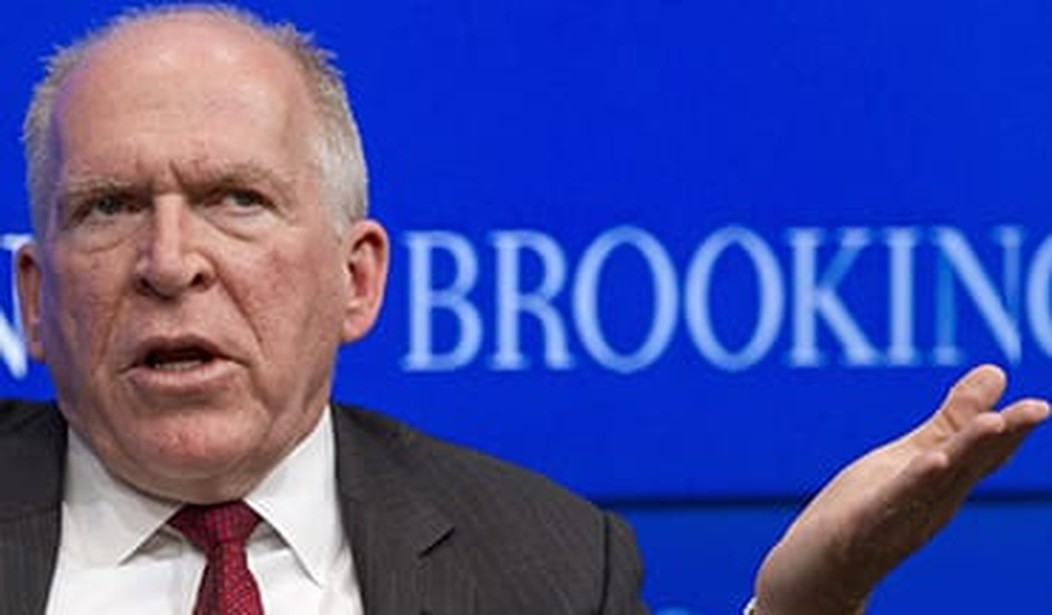As most people know, joining the intelligence community means that one has to explain and be honest about one’s former peccadillos. One must also be aware of what figures in government spied against their own country in the past. Some years ago, as a CIA study of the Alger Hiss case noted, President Clinton’s nominee to head the CIA was rejected partially because of what he said about Soviet spy Alger Hiss:
Anyone who doubts that the Hiss case continues to effect American politics need only ask Anthony Lake, President Clinton’s former national security adviser. In November 1996, following the resignation of Director of Central Intelligence (DCI) John Deutch, Clinton nominated Lake to be the new DCI. On 24 November, Lake appeared on Meet the Press , where he was interviewed by moderator Tim Russert:
Russert: You’re a student of history. Do you believe Alger Hiss was a spy?
Lake: I’ve read a couple of books that have certainly offered a lot of evidence that he may have been. I don’t think it’s conclusive.
Conservative senators and pundits already were skeptical of Lake’s qualifications, largely because they were critical of Clinton’s foreign policies and viewed Lake as one of their key architects, and they quickly claimed that his comment was another indication that he should not be confirmed as DCI. “The Hiss case hits Lake in his blind spot,” wrote Jacob Heilbrunn in The New Republic . “Lake’s view of the world is rooted in moral ambiguity and ambivalence… [his] career-long penchant has been to evade unpleasant realities.” Senator Richard Shelby wondered what the comment said about Lake’s fitness: “What is this man’s true philosophy? Where is he coming from?” asked Shelby. Lake, under attack by Republican senators on several other issues as well, asked in March 1997 that his nomination be withdrawn; while it would be inaccurate to say that his Hiss remark destroyed his chances for confirmation, the reaction demonstrated the case never has been forgotten and that a chance remark about it still may have serious consequences.
Last week, however, CNN reporter Tal Kopan found a striking admission from CIA Director John Brennan. When he first applied to join the CIA, and received his polygraph test, he was asked this standard question:
Have you ever worked with or for a group that was dedicated to overthrowing the US?
Remarking on this last week during a panel discussion at the Congressional Black Caucus Foundation’s annual conference, Brennan said: “I froze…. This was back in 1980, and I thought back to a previous election where I voted, and I voted for the Communist Party candidate.” Brennan was responding to a question about barriers to recruiting diverse candidates for the intelligence agencies, including whether past records of activism could hurt someone applying for a clearance later in life.
Brennan called his support of the Communist Party a mere “indiscretion,” and reminded his audience that the Constitution grants free speech. He then remembered that he said to himself he could either lie and the polygraph machine would “go wacko” or tell the truth and face the consequences, including possibly being rejected for employment. He told the audience he voted for Gus Hall because while in college he was unhappy “with the system” and saw the “need for change.”
Now a lot of people wanted change—but very few of them, perhaps 1/10th of 1 percent, supported the presidential candidate of the American Communist Party, Gus Hall. Indeed, the CPUSA at that time was dedicated to gaining support for Soviet foreign policy, with the intent of defeating the United States in the Cold War. Anyone who watches The Americans, perhaps the best drama on American television, knows this. And it was revealed long ago by Harvey Klehr and John Earl Haynes that Moscow regularly gave Hall thousands of dollars to enable the Communists in America to carry on their work.
Perhaps Brennan was saved because he was not a Communist Party member, and only supported its agenda. But it’s rather difficult to understand how Brennan was taken into the CIA, when a few years later Anthony Lake was discredited simply because he thought Hiss might be innocent. Brennan was relieved to find that “even then it recognized the importance of freedom.”
Brennan certainly had the right to vote for the CPUSA’s candidate, since he was voting for a legal political party. That, however, is not the real issue. The issue is Brennan’s lack of judgement and his failure to understand what the Communist Party stood for—support to the enemies of the American democratic political system. Brennan didn’t see it that way:
So if back in 1980, John Brennan was allowed to say, “I voted for the Communist Party with Gus Hall” … and still got through, rest assured that your rights and your expressions and your freedom of speech as Americans is something that’s not going to be disqualifying of you as you pursue a career in government.
Let me end with my own personal example. When President George W. Bush appointed me to a government board, the Public Interest Declassification Board, agents interviewed me and asked me precisely the same question Brennan was asked when he applied to join the CIA. I immediately answered yes, and then gave the agents my published memoir, Commies: A Journey Through the Old Left, the New Left and the Leftover Left. I told them “the whole story is in here,” and that the book relates how I learned the truth about the American Left and its policies, why I left its ranks, and why I became a conservative. They took it, and asked if I would sign it.
The point is that I explained why I had changed, and why I no longer considered my old actions something to be proud of.
John Brennan did the opposite, and was accepted in the CIA. In a sane world, he would have been turned down.









Join the conversation as a VIP Member